
The Rumpi mouse shrew is a Myosoricinae shrew found only on the Rumpi Hills, Cameroon. It is listed as a critically endangered species due to habitat loss and a restricted range.

The wildlife of Cameroon is composed of its flora and fauna. Bordering Nigeria, it is considered one of the wettest parts of Africa and records Africa's second highest concentration of biodiversity. To preserve its wildlife, Cameroon has more than 20 protected reserves comprising national parks, zoos, forest reserves and sanctuaries. The protected areas were first created in the northern region under the colonial administration in 1932; the first two reserves established were Mozogo Gokoro Reserve and the Bénoué Reserve, which was followed by the Waza Reserve on 24 March 1934. The coverage of reserves was initially about 4 percent of the country's area, rising to 12 percent; the administration proposes to cover 30 percent of the land area.
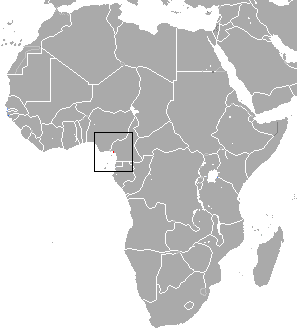
Eisentraut's shrew is a species of mammal in the family Soricidae. It is endemic to Cameroon. Its natural habitat is subtropical or tropical high-elevation grassland.
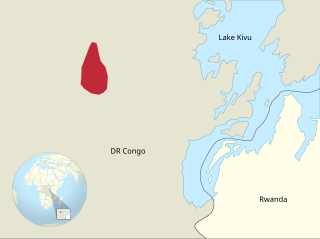
The Kahuzi swamp shrew is a species of mammal in the family Soricidae found in the Democratic Republic of the Congo. Its natural habitat is swampland.
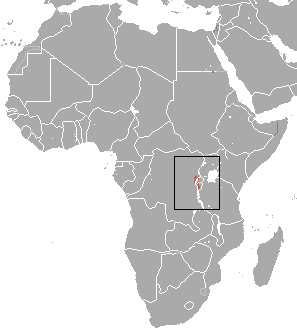
Babault's mouse shrew is a species of mammal in the family Soricidae found in Burundi, the Democratic Republic of the Congo, and Uganda. Its natural habitat is subtropical or tropical moist montane forests.
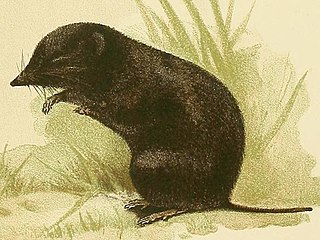
Myosorex is a mammal genus in the Soricidae (shrew) family. The genus, collectively referred to as the mouse shrews, contains these species:

The montane mouse shrew is a species of mammal in the family Soricidae endemic to Uganda. Its natural habitats are subtropical or tropical moist montane forests and swamps. It is threatened by habitat loss.

The dark-footed mouse shrew is a species of mammal in the family Soricidae found in Mozambique, South Africa, Eswatini, and Zimbabwe. Its natural habitat is subtropical or tropical moist montane forests. It was formerly sometimes called the dark-footed forest shrew.
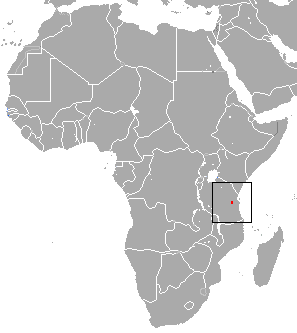
The Geata mouse shrew is a species of mammal in the family Soricidae endemic to Tanzania. Its natural habitat is subtropical or tropical moist montane forests.

Kihaule's mouse shrew is a species of mammal in the family Soricidae endemic to Tanzania where it is known only from the Udzungwa Mountains, at the western end of the Eastern Arc Mountains. Its natural habitats are subtropical or tropical moist montane forests and plantations. It is threatened by habitat destruction and the International Union for Conservation of Nature has assessed its conservation status as being "endangered". It was named after Philip M. Kihaule, a medical-entomological technician, who considerably contributed to the documenting of the small mammals of Tanzania and collected the type specimen of this shrew.

The long-tailed forest shrew, or long-tailed mouse shrew, is a species of mammal in the family Soricidae. It is endemic to South Africa, where its natural habitats are Mediterranean-type shrubby vegetation and swamps.

The Oku mouse shrew is a species of mammal in the family Soricidae endemic to Cameroon. Its natural habitat is subtropical or tropical moist montane forests.

Schaller's mouse shrew is a species of mammal in the family Soricidae endemic to the Democratic Republic of Congo. Its natural habitat is subtropical or tropical moist montane forests.

Sclater's mouse shrew is a species of mammal in the family Soricidae endemic to South Africa. Its natural habitats are subtropical or tropical moist lowland forests and swamps.

The thin mouse shrew is a species of mammal in the family Soricidae found in South Africa and possibly Mozambique.

The forest shrew is a species of shrew in the mouse shrew family, Soricidae. It is found in Lesotho, South Africa, and Eswatini. Its natural habitats include temperate forests, dry savanna, Mediterranean-type shrubby vegetation, and temperate grassland. The term "forest shrews" in the plural is sometimes confusingly used to collectively refer to a different genus, Sylvisorex.
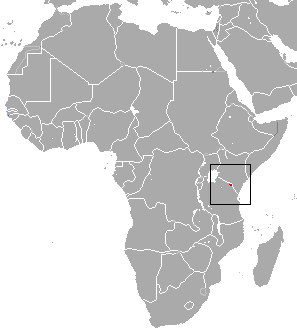
The Kilimanjaro mouse shrew is a species of mammal in the family Soricidae endemic to Kilimanjaro Region of Tanzania. Its natural habitats are subtropical or tropical moist montane forests and swamps.

According to the current taxonomy, the Myosoricinae are a subfamily of shrews. As such, they form one of three main types of shrews, the other two being the red-toothed shrews and the white-toothed shrews. They are the only one of the three to be found exclusively south of the Sahara Desert, and so they have been described in English as the African shrews, but also many white-toothed shrews are in Africa and therefore this term is more generally used for shrews from Africa in general. The subfamily has three genera and 20 species:
The Bururi forest shrew is a species of mouse shrew native to Burundi. It was first described by Peterhans et al. in 2010, and is defined by a broad hexagonal skull, short tail, and long claws.
The Nyika burrowing shrew is a species of mammal in the family Soricidae found in Malawi.

















